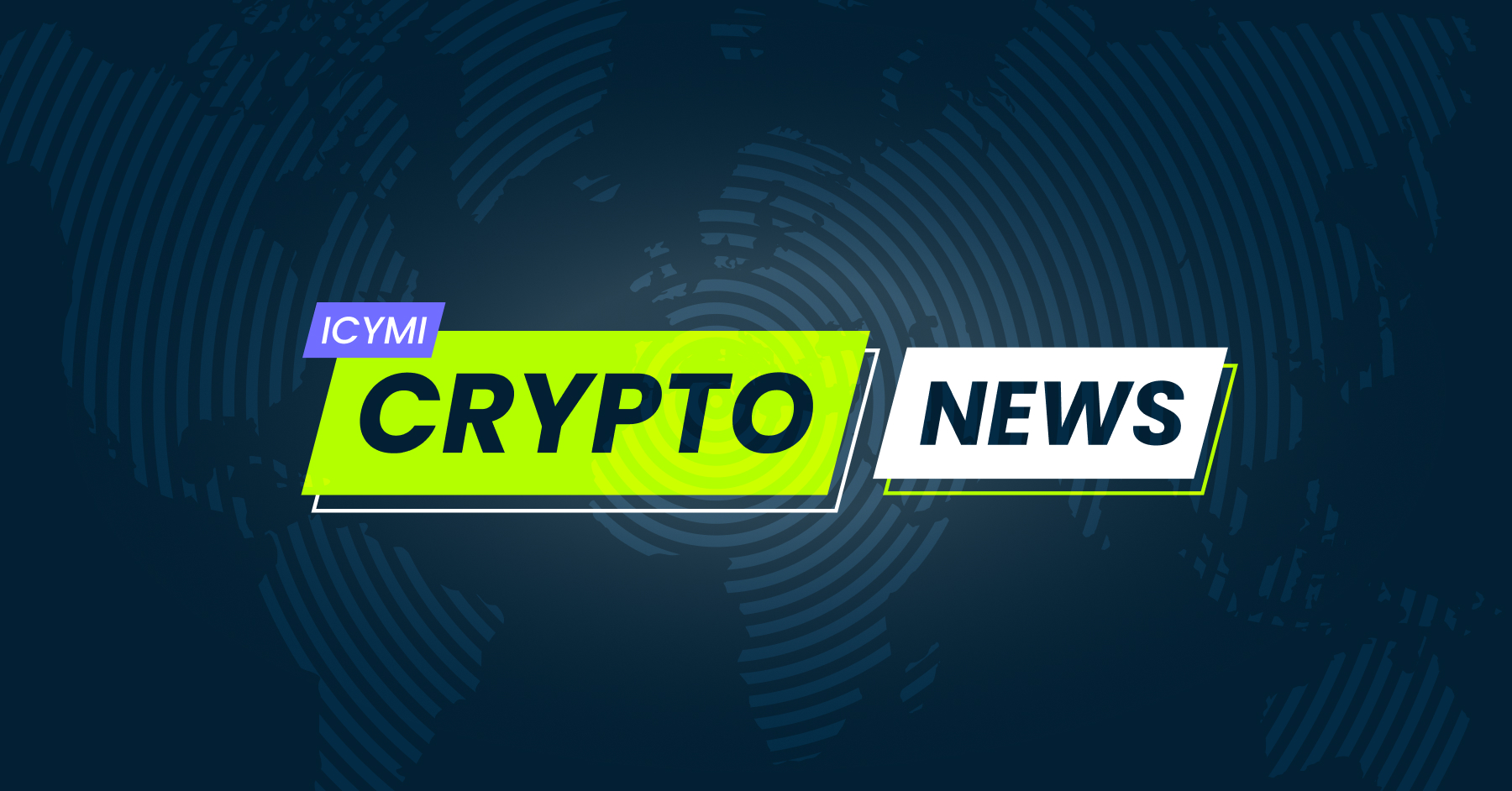Latest Patterns and Updates in copyright News You Can't Miss
Latest Patterns and Updates in copyright News You Can't Miss
Blog Article
Exploring the Impact of Governing Modifications and Technological Advancements on Today's Digital Currencies Headings
The intersection of governing adjustments and technical advancements is basically altering the landscape of digital money, motivating a re-evaluation of their function in the international economic climate. Governing bodies, such as the SEC and CFTC, are actively influencing how digital properties are identified, while new modern technologies are improving deal effectiveness and safety actions. This twin evolution increases crucial concerns concerning the implications for market characteristics and investor self-confidence. As we check out these growths, the concern remains: just how will these aspects shape the future trajectory of digital currencies in an increasingly interconnected world?
Current Regulatory Landscape
Following quick improvements in electronic currencies, the current regulative landscape is advancing to attend to the complexities and difficulties posed by these innovations. Federal governments and regulative bodies worldwide are grappling with just how to successfully supervise this expanding market, which usually transcends nationwide boundaries.
Key regulative approaches consist of the establishment of structures that specify electronic money, ensuring customer security and preventing immoral activities such as cash laundering and fraud. In the United States, companies like the Securities and Exchange Compensation (SEC) and the Commodity Futures Trading Payment (CFTC) are proactively participating in conversations to make clear the category of different electronic possessions and their regulative effects.
Likewise, the European Union is advancing its Markets in copyright-Assets (MiCA) guideline, which intends to develop a natural regulatory atmosphere across member states. Nations like China have chosen more stringent actions, consisting of outright bans on specific copyright activities.
As this regulatory landscape remains to establish, it will be critical for stakeholders, including services and consumers, to remain educated and adjust to the changing environment to mitigate risks while maximizing opportunities within the electronic currency sphere.
Key Technological Innovations
Numerous technological developments are improving the landscape of digital money, significantly improving their capability and safety. One of one of the most critical improvements is the growth of blockchain innovation, which supplies a decentralized journal that ensures transparency and immutability of purchases. copyright news. This modern technology not only mitigates the risk of fraudulence however additionally permits real-time deal verification, cultivating user count on
Additionally, the introduction of wise agreements has actually transformed exactly how arrangements are performed within digital currency ecological communities. These self-executing contracts assist in automatic deals, removing intermediaries and decreasing costs related to traditional contract enforcement. In addition, innovations in cryptographic strategies boost the safety and security of digital budgets, guarding customers' properties from possible cyber risks.
An additional notable advancement is the integration of expert system in purchase surveillance and fraud detection, allowing systems to determine dubious activities without delay. The intro of Layer 2 scaling remedies, such as the Lightning Network, addresses scalability issues, permitting for faster and less expensive purchases on networks like Bitcoin.

Effect On Market Characteristics
Technical technologies in electronic money have not just enhanced functionality and safety but have likewise dramatically modified market dynamics. The introduction of blockchain modern technology has enhanced transparency and reduced purchase costs, leading to higher efficiency in trading and financial investment. This has actually urged a more varied variety of individuals, from retail financiers to institutional gamers, to why not check here involve with electronic currencies, consequently magnifying market liquidity.
In addition, the emergence of decentralized finance (DeFi) platforms has actually interfered with standard financial systems, giving customers with alternate opportunities for borrowing, loaning, and trading. This change has promoted a competitive atmosphere where standard economic organizations are obliged to innovate or take the chance of obsolescence (copyright news). With the surge of stablecoins, which provide rate stability amidst browse around here volatility, investors can currently carry out transactions with decreased danger, further influencing market behavior
Additionally, the combination of expert system and maker understanding in trading strategies permits a lot more advanced market analysis and anticipating modeling. Consequently, investors are much better equipped to reply to market variations, producing a much more vibrant trading atmosphere. Jointly, these innovations are reshaping the landscape of digital currencies, resulting in a much more interconnected, competitive, and effective market.

Worldwide Point Of Views on Regulation
Governing techniques to electronic money vary significantly across the globe, usually showing differing financial priorities, social perspectives towards development, and levels of technological fostering. In the United States, governing bodies such as the SEC and CFTC face specifying the lawful standing of cryptocurrencies, concentrating on capitalist defense and market stability. The European Union is progressing extensive regulative frameworks like the Markets in copyright-Assets (MiCA) proposition, intending to produce a unified approach that fosters development while ensuring link customer security.
In contrast, nations like China have embraced an outright restriction on cryptocurrencies, focusing on monetary control and economic security over advancement. On the other hand, nations such as El Salvador have actually embraced Bitcoin as legal tender, showcasing a strong commitment to financial incorporation and economic innovation.
Developing nations often discover themselves navigating a complex landscape, stabilizing the demand for regulation with the potential benefits of digital currencies in driving financial growth. Generally, the worldwide governing atmosphere continues to be fragmented, with continuous dialogues and adjustments as governments seek to strike a balance between promoting advancement and mitigating risks related to digital money. This dynamic landscape highlights the need for recurring international participation and discussion amongst regulators.
Future Trends in Digital Currencies
As regulative frameworks develop, the landscape of digital currencies is positioned for substantial change. Arising trends suggest a merging of regulatory clearness and technical advancement, which will form the future of electronic money. Reserve Bank Digital Currencies (CBDCs) are expected to obtain grip as governments explore their potential to boost financial plan effectiveness and monetary incorporation.
At the same time, decentralized financing (DeFi) platforms are anticipated to test traditional banking systems, providing ingenious monetary solutions that run without middlemans. This change can lead to a re-evaluation of existing laws to accommodate the distinct attributes of DeFi while ensuring customer defense and systemic security.
Moreover, the integration of fabricated knowledge and artificial intelligence in copyright trading and danger analysis will redefine investment techniques and market dynamics. As digital money become significantly conventional, concerns such as cybersecurity hazards and governing conformity will necessitate robust remedies.
Last but not least, public assumption and adoption will certainly play a crucial function in identifying the trajectory of electronic currencies. Raised understanding and education and learning regarding the benefits and threats related to electronic money will drive acceptance, eventually influencing the regulatory landscape and market advancements in the years to come.
Final Thought

Report this page